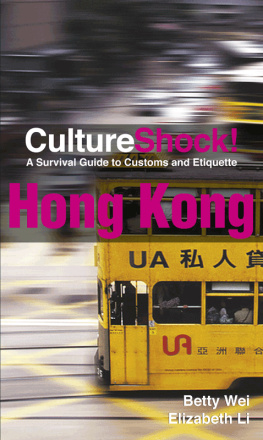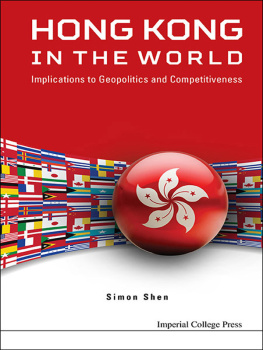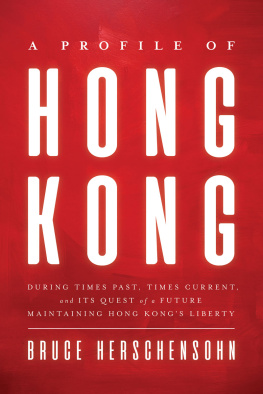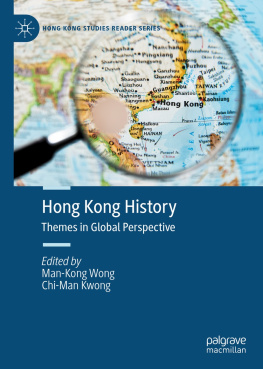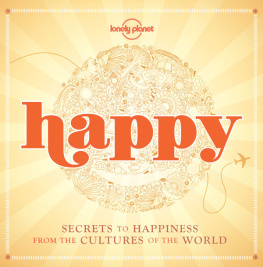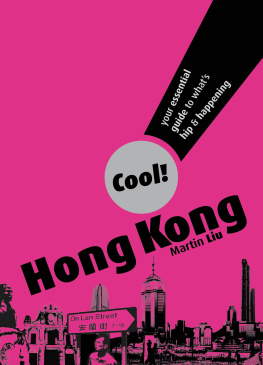First published 2001 by Ashgate Publishing
Reissued 2018 by Routledge
2 Park Square, Milton Park, Abingdon, Oxon OX14 4RN
711 Third Avenue, New York, NY 10017, USA
Routledge is an imprint of the Taylor & Francis Group, an informa business
Copyright Grace Po-chee Ko 2001
All rights reserved. No part of this book may be reprinted or reproduced or utilised in any form or by any electronic, mechanical, or other means, now known or hereafter invented, including photocopying and recording, or in any information storage or retrieval system, without permission in writing from the publishers.
Notice:
Product or corporate names may be trademarks or registered trademarks, and are used only for identification and explanation without intent to infringe.
Publishers Note
The publisher has gone to great lengths to ensure the quality of this reprint but points out that some imperfections in the original copies may be apparent.
Disclaimer
The publisher has made every effort to trace copyright holders and welcomes correspondence from those they have been unable to contact.
A Library of Congress record exists under LC control number: 00132809
ISBN 13: 978-1-138-71728-2 (hbk)
ISBN 13: 978-1-315-19643-5 (ebk)
Adoptive Parenthood in Hong Kong
This is the first systematic study of nonrelative adoption in Hong Kong. It examines the changing profile of nonrelative adoption in Hong Kong, 1987-93. Four hundred and eighty-six unsampled case files were analyzed. Characteristics of the adoptive parents, adopted children and their birth are in statistics.
Infertility was the major reason for adoption. Although people from different socio-economic groups were adopting, most adoptive parents were better educated, had a higher income and they had a religion. Children were relinquished due to young age of the unwed mothers who were mainly secondary students, unskilled or semi-skilled workers.
Ethnographic insights were collected by participant observation in the two mutual-aid organizations, one for Chinese speaking adoptive parents, and the other for English speakers. Twelve in-depth group interview sessions were held with the executive committee of the Chinese speaking organization. In-depth interviews held with three senior personnel of the Social Welfare Department and with a supervisor of the overseas adoption unit, International Social Service, provided a developmental sketch of adoption in Hong Kong.
Information obtained from ethnographic procedures was used to formulate hypotheses for testing. A total of 668 structured questionnaires were distributed, the return rate was 41%. It was found that Chinese inracial adopters experienced higher stress than Caucasian transracial adopters did. Parents adopting special needs children, and parents adopting more than one child experienced less stress than those adopting healthy infants or those adopting only one child. Adoptive parents who had read books and reports prior to adoption experienced less stress. However, sharing with other role models in the mutual-aid organization did not reduce stress of members of the Chinese group, but it did for the English speakers. Higher stress was also positively related
to adopters conventional perception of adoption and their worries over the relationship with birth parents. Parental characteristics such as warmth, love, patience, openness and assertiveness and parent-child relationship were positively related to stress. This was probably due to the higher level of commitment and involvement among adopters in their parental roles. Three predictors of adoption stresses were identified: adjustment in adoption and threat to parental entitlement were positively related to adoption stress; parental education was negatively related to it. Apart from being more stressful, Chinese adopters were found to be significantly different from non-Chinese for having a lower level of acknowledgment of difference, are more worrisome over the relationship with birth parents, are less ready to reveal adoption, have better adoptive parent-child relationship, and possess higher level of personal qualities. Non-Chinese adopters are, however, more ready to seek help in matters regarding adoption, and are making more contacts with the birth parents.
The findings of the study suggest that a post-legal adoption service is urgently needed. Better training for social workers to provide pre-adoption counselling to related couples, to increase understanding of the impact of infertility and social stigma toward adoption and the various developmental tasks unique to adoptive family life cycle. More Chinese publications for adopters; further research on adoption outcome and on the adoptive parent-child relationship are recommended. A comprehensive child welfare policy is needed.
A Brief Account of Adoption in Hong Kong
Adoption is one of the earliest social services in Hong Kong. In the 1940s and 1950s, hundreds of unwanted children and orphans often found on the streets or left in hospitals were easily adopted by interested individuals or families after performing some simple registration procedures with the then Secretary for Home Affairs. Chinese customary adoption was also legally accepted when two known or unknown consenting persons agreed upon the adoption of a child on the basis of private arrangement. During this period, children were abandoned mainly due to financial reasons. Girls, who were assigned a lower status in the Chinese society, were given away readily by birth parents. As a result, a number of childrens homes, mainly non-government organizations were established to provide residential care for these children until they reached their late adolescence or early adulthood. Children placed for adoption were considered fortunate.
In 1958, the International Social Service began to process adoption for families overseas. In the 1970s, some joint work began to take place between the government and Caritas-Hong Kong. These families were mostly Caucasians, though some were Chinese who lived abroad.
The Adoption Unit of the Social Welfare Department was established in 195657 when the Adoption Ordinance came into force on 12th October, 1956. However, the formalization of adoption work in Hong Kong did not emerge until the Adoption Ordinance was amended in 1972 so that adoption in Hong Kong have to be effected only in accordance with such ordinance. Yet, for the following 16 years, different family service centres handled pre-adoption services over the territory that reflected the inadequate coordination and continuity among social work professionals as far as pre-adoption counselling and procedures were concerned. The situation improved in 198788 when pre-adoption work and adoption work were centralized so that related duties were performed by the same social worker under the Adoption Unit.
Although there was a support group for English speaking adoptive parents in the late seventies, now known as the Adoptive Families in Hong Kong, such a mutual-aid organization for Chinese adopters, now known as the Happy Parents Association, did not come into place until 1992. It was registered as a charitable organization in October, 1993. Both were self-financing organizations independent of the Social Welfare Department. The nonexistence of a post-legal adoption service was largely due to the belief held by policy makers that families having problems in the adoptive relationship can approach family service centres like every other family. On one hand, this showed that the unique nature of the adoptive family life cycle was not seriously taken into consideration. On the other hand, it reflected the fact that finding suitable homes for children in need in order to relieve the high cost of residential care was the major concern for adoption in Hong Kong. A well-formulated child welfare policy was not identifiable, and adoption was often seen as an adjunct to any other child placement machinery such as residential care and foster care.




